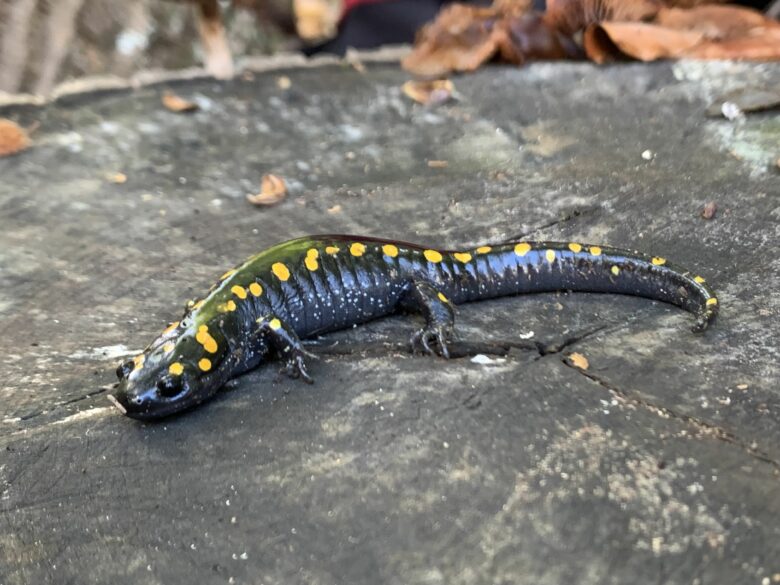
Vernal Pools Cooperative of Virginia
About this Project
This project engages Virginia Master Naturalist volunteers in monitoring, providing educational programs about, and stewarding vernal pools in Virginia. The pools are primarily on public properties such as local parks and state parks.

Who Is Involved?
Volunteers for this project need to be enrolled Virginia Master Naturalist volunteers in one of our 30 chapters or be land managers participating in their professional capacity.
The following individuals are providing some structure and organization for the project, but the bulk of project activities, including sharing the data for local conservation purposes, are done by the volunteers.
- Michelle Prysby – Virginia Master Naturalist Program Director, Virginia Tech/Virginia Cooperative Extension, assisting with communications and organization.
- Susan Watson – Virginia Department of Wildlife Resources, providing technical and scientific direction and training workshops.
- Anne Wright – Virginia Commonwealth University (retired), providing technical and scientific direction and training workshops.
- Paula Labieniec – Virginia Master Naturalist volunteer, Pocahontas Chapter, serving as database coordinator.
Project Resources
Additional resources may be found by project participants on the CitSci.org site.
Vernal Pool Cooperative Activity Proposal Form
New Pool Submission Datasheet Vernal Pool Observation Datasheet
Vernal Pool Cooperative Chapter Liaison Job Description: We need one point-of-contact for each VMN chapter participating in this project, as described in this job description. Please contact Michelle Prysby to volunteer for this role.
Sample Report to Land Managers
Potential Add-on Activities
Useful Links
- Herpetofaunal disease resources from Partners in Amphibian and Reptile Conservation (PARC). Volunteers in this project must disinfect boots and equipment to reduce the chance for spreading diseases, and this PARC page provides recommendations on how to do it.
- Current Vernal Pools Cooperative of Virginia Project on CitSci.org. A CitSci account is required to submit data to this site. Members of the CitSci project must be currently enrolled VMN volunteers or land manager partners assisting with the project in their professional capacity.
- Information on permits from the Virginia Department of Wildlife Resources. A scientific research and collection permit is required for this project if wildlife will be handled or if sampling will involve walking through and disturbing the pools. For most pools, volunteers should observe from the perimeter only and avoid handling any wildlife. If the local land manager wishes for more intensive monitoring, volunteer must apply for a permit or be listed as collaborators on the land manager’s permit.
- Various blog articles from CitSci.org on how to use their site.
- Training videos: Hannah Bement, a previous VMN volunteer working on this project, created two training videos for her chapter that others are welcome to watch and use.
Longer video (1 hour, 45 minutes)
Shorter video, more focused on procedures and identification (45 minutes)